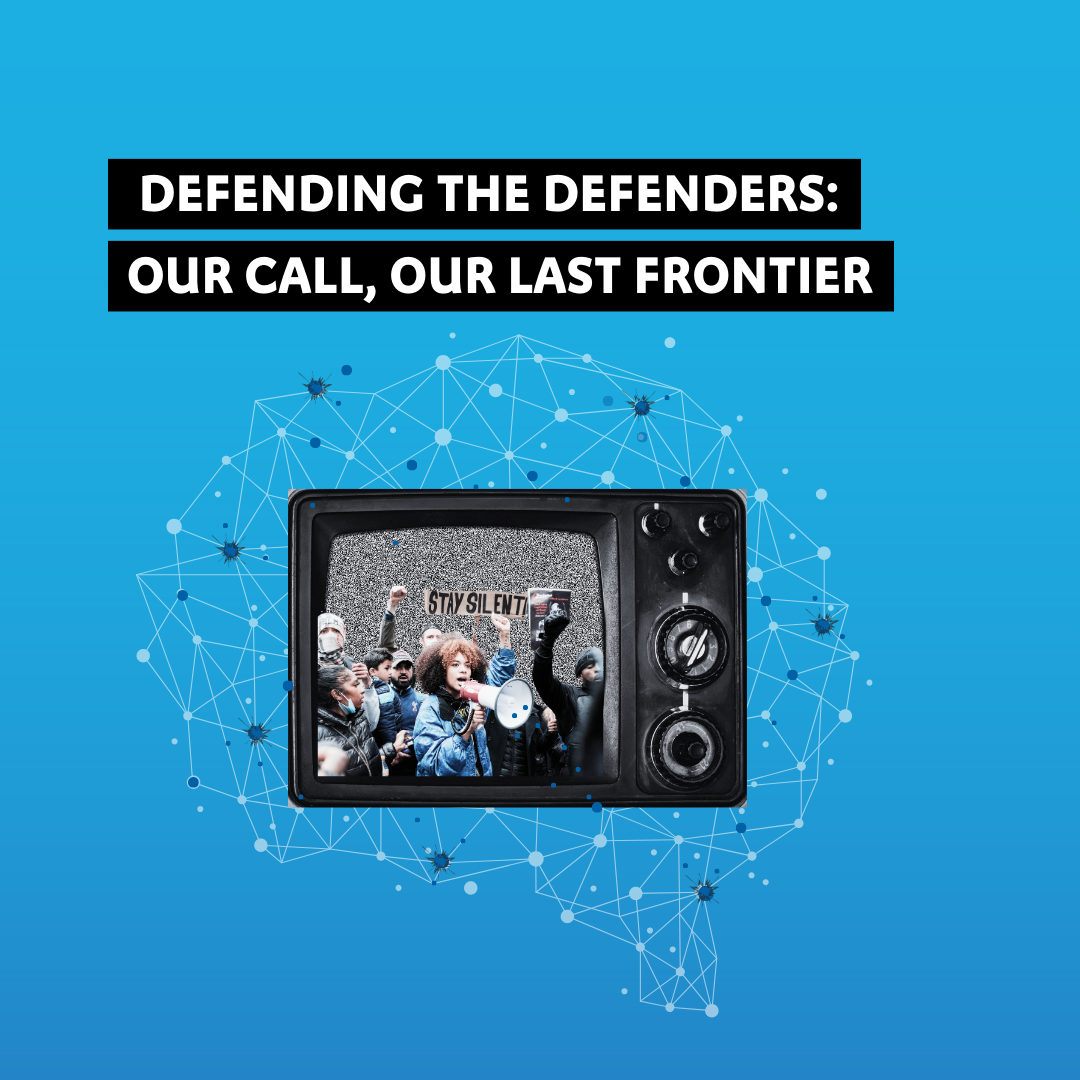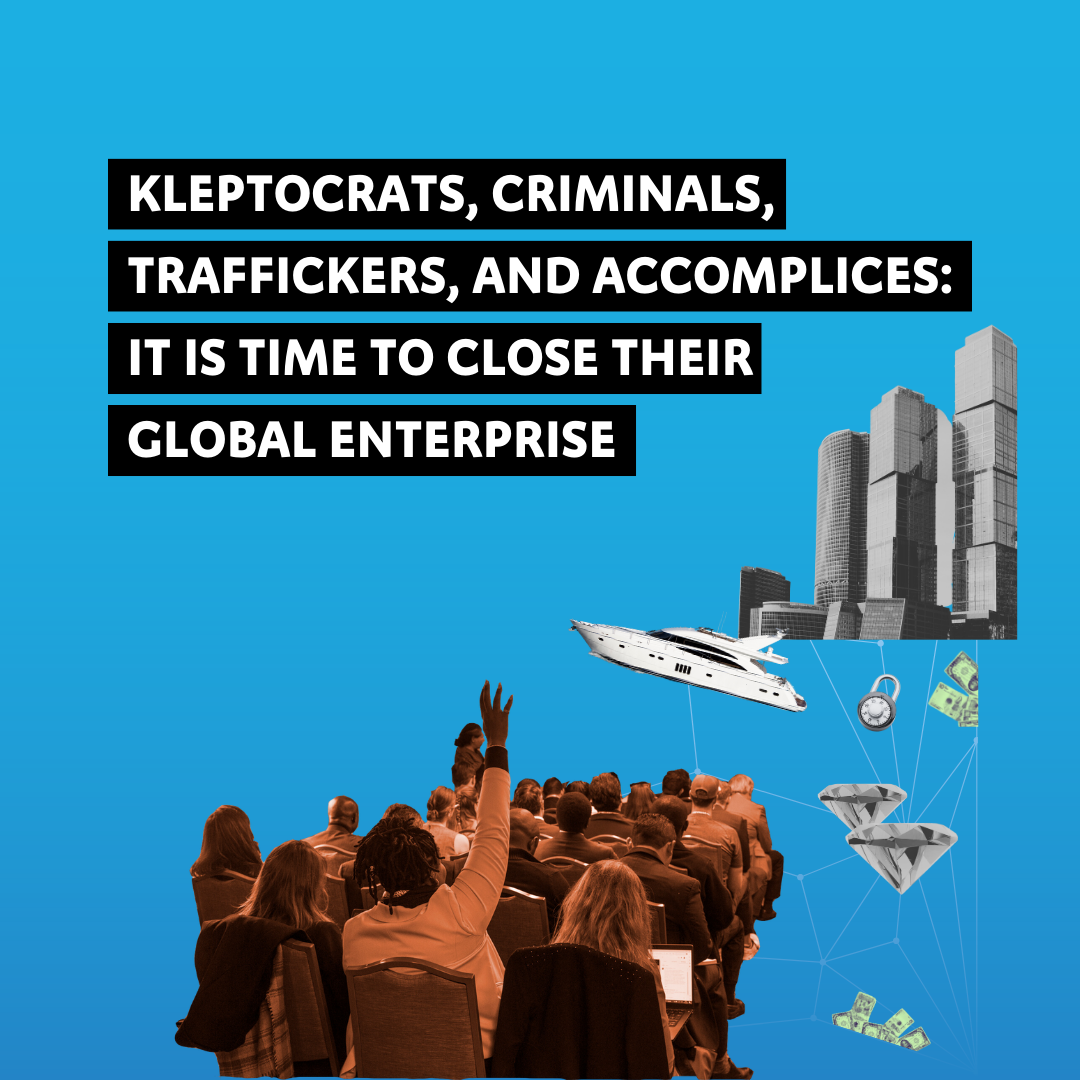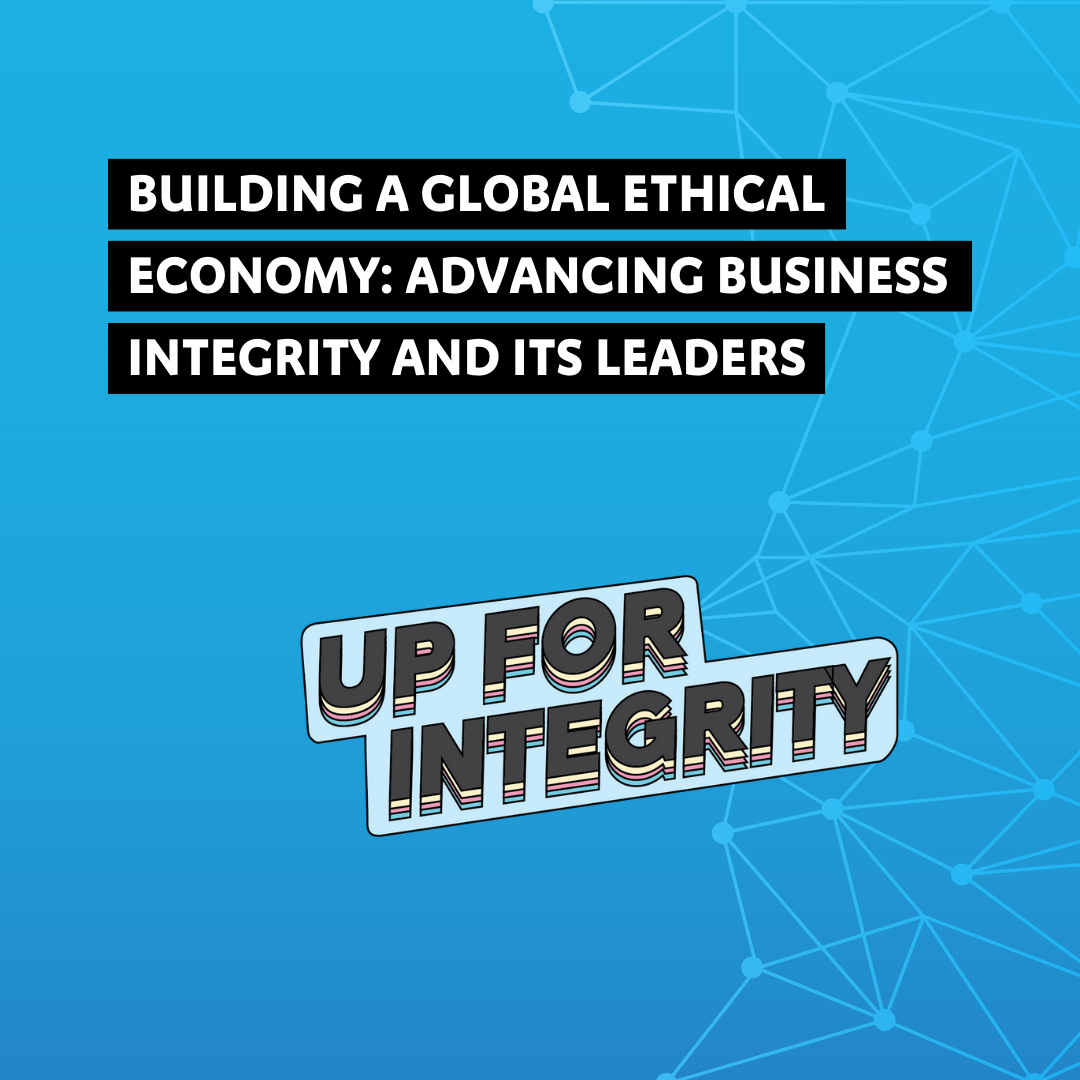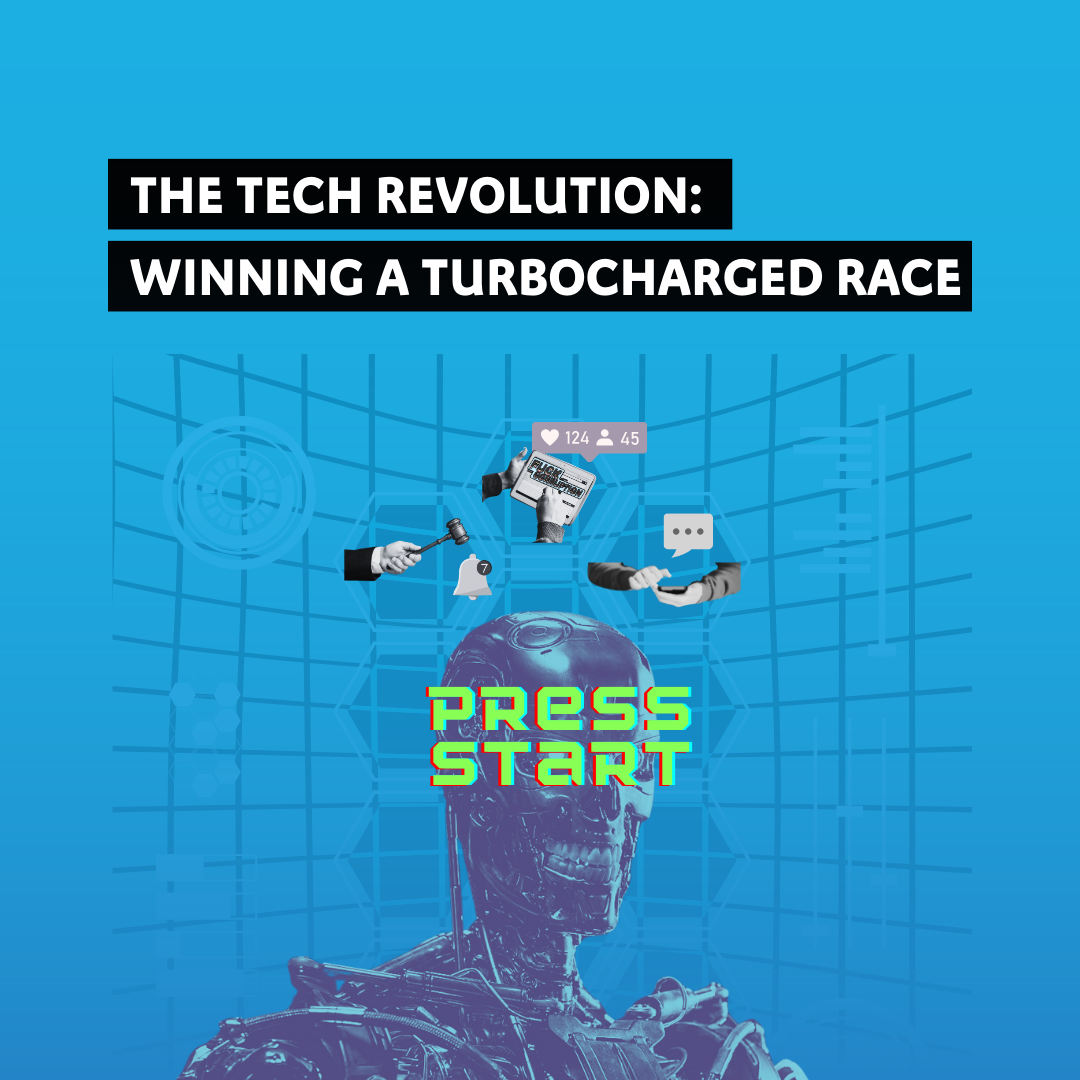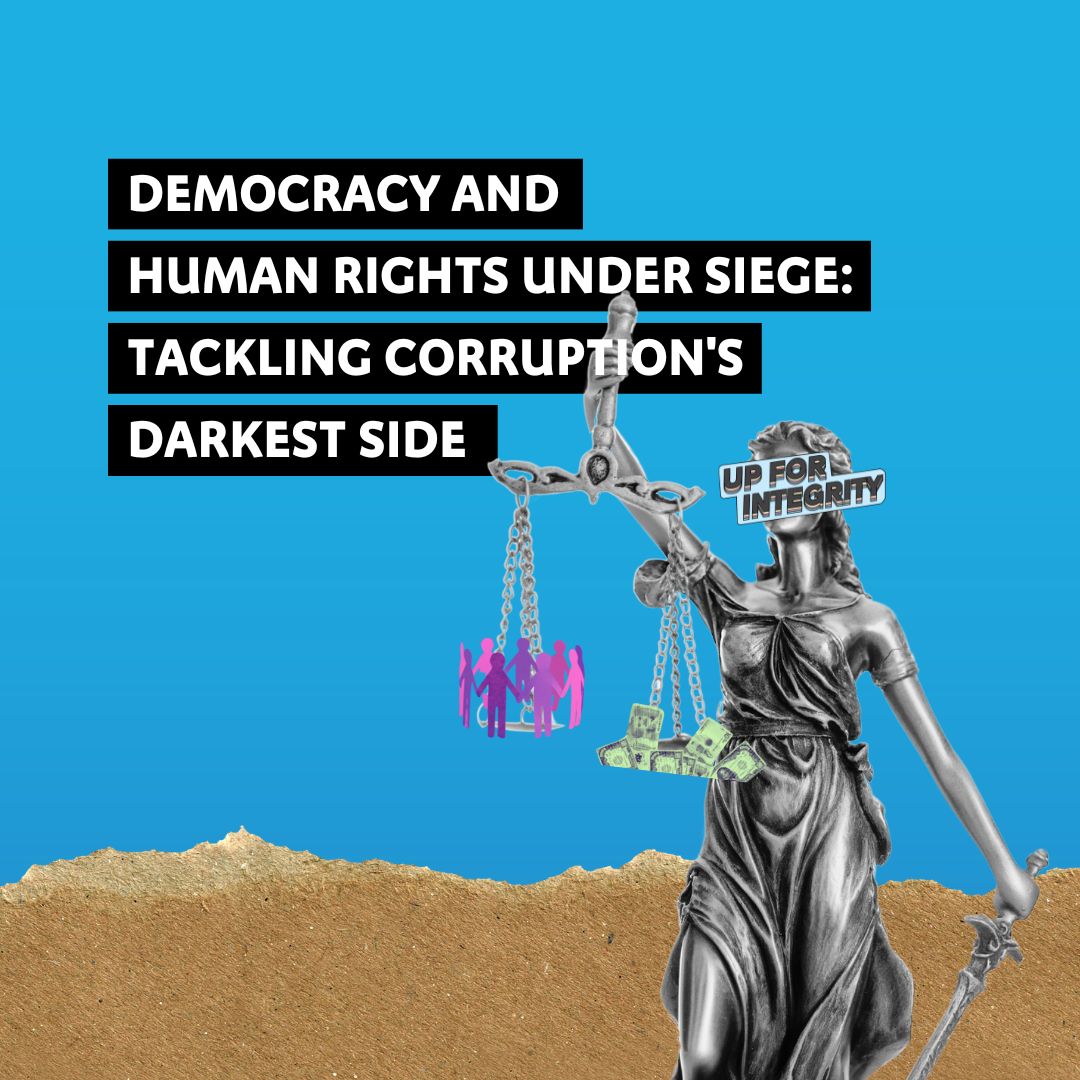View #IACC 2024 Thematic tracks
Defusing The Trigger: Corruption, Global Insecurity and Violent Conflicts
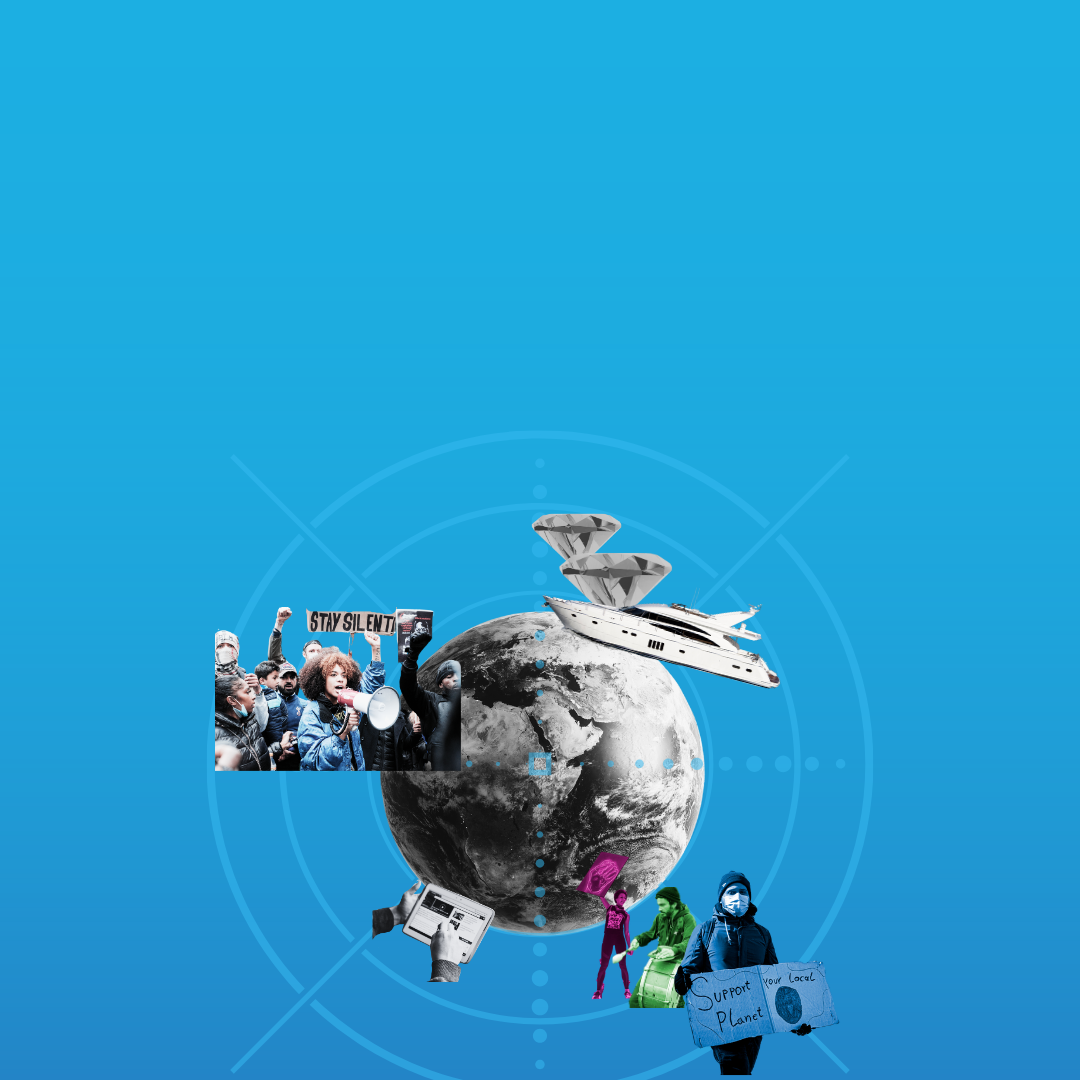
Violent conflicts, crisis, and chaos only benefit kleptocrats, the corrupt and their accomplices. Strategic corruption, used as a foreign policy tool force societies at large to pay a deadly price. The current regional and local conflicts are costing tens of thousands of innocent lives and causing irreparable damage, globally. The impunity around these global crimes not only prolongs them but foster the proliferation of more of violent conflicts. We are reaching now historical proportions. This is a soaring global risk with no end in sight.
The 21st IACC calls experts and practitioners from around the world to engage in the analysis of the deadly effects of corruption on peace and human security, be it on a global, regional and local level, and to propose actions to stop corruption both as a precursor -and trigger- of conflicts, as well as an obstacle to reach peaceful resolutions and just repair.
Workshops
-
Corruption at The Root of Violent Conflict: Policy Implications and Solutions
This workshop – brought together by Chatham House and the Asia Foundation through the Cross-Border Conflict Evidence, Policy and Trends (XCEPT) research programme – explores the intersection of corruption and violent conflict across Asia, the Middle East, and Africa. The workshop will discuss the link between corruption and conflict and considerations for tackling corruption for conflict reduction.
XCEPT
XCEPT, Kachinland Research Centre, Chatham House and United Nations University Centre for Policy Research
-
Just and Transparent Financing of Ukraine’s Reconstruction
The workshop’s objective is to explore the efficient and transparent utilization of financial resources allocated for the recovery and reconstruction of Ukraine. The conversation will delve into digital tools ensuring transparency, such as the DREAM system and other, as well as into various funding sources, with a primary focus on the confiscation of frozen Russian assets being a legitimate means of compensation for the damages and hardships inflicted.
RISE Coalition
Open Contracting Partnership, Better Regulation Delivery Office, Institute of Legislative Ideas, German Marshall Fund and Basel Institute on Governance
-
Confronting Strategic Corruption and Illicit Finance: Democratic Resilience and Economic Security
Building on the Summit for Democracy’s Cohort on Anti-Corruption Policies and National Security, this panel tackles how to effectively combat strategic corruption and state capture. Experts will share best practices on investment screening, tracking illicit wealth and assets of sanctioned individuals, use of big data for risk assessments, and corruption-proofing of legislation.
Center for the Study of Democracy
Regional Anti-Corruption Initiative (RAI), Center for the Study of Democracy, Organisation for Economic Co-operation and Development (OECD), University of Bologna, International Anti-Corruption Academy in Vienna, U4 Anti-corruption Resource Centre
-
Feeding The Russian War Machine: Lessons Learned from Investigating Cross-Border Sanction Evasion
Historic trade sanctions against Russia have prompted an equally historic rise in illicit activity–elaborate cross-border schemes that perpetuate both kleptocracy and war. In Lithuania and other front-line nations, journalists are producing crucial accounts of sanction evasion and its profiteers. Learn from journalists about their findings, tactics, and how secrecy and corruption impede responses.
Organized Crime and Corruption Reporting Project (OCCRP)
Organized Crime and Corruption Reporting Project (OCCRP), Baltic Center for Investigative Journalism Re:Baltica, Journalistic Data Processing Centre, Finnish Public Broadcasting Company (YLE) and Belarusian Investigative Center
-
Sizing up (Re)Construction. Measuring Local-Level Recovery Integrity
Amidst the ongoing war in Ukraine, it’s hard to define what a successful infusion of integrity and transparency into local-level reconstruction looks like. Different actors have diverging views on this. Yet, national and local governments, CSOs, and businesses must converge to devise measurement frameworks to gauge anti-corruption success. The panel and audience dialogue will explore how to achieve this.
United States Agency for International Development (USAID) & Foreign, Commonwealth & Development Office (FCDO) Pro-Integrity Program and the European Union Anti-Corruption Initiative (EUACI)
United States Agency for International Development (USAID) & Foreign, Commonwealth & Development Office (FCDO) Pro-Integrity Program, the European Union Anti-Corruption Initiative (EUACI), State Agency for Reconstruction and Development of Infrastructure of Ukraine, Mykolayiv City Mayor's Office, Bihus.Info, and Union of Ukrainian Entrepreneurs (SUP)
-
The Unseen War. Fighting Corruption in Emergency Situations
How can MDBs engage in crisis situations in ways that are context-specific and do not come at an unacceptable cost: from preventing and reducing the risk of corruption in crisis situations to how they investigate instances of prohibited practices this workshop will develop on the MDB approach by bringing case examples of successful and unsuccessful investigations and draw lessons learnt.
European Investment Bank (EIB), African Development Bank (AfDB), Asian Development Bank (ADB) and Inter-American Development Bank (IDB), European Bank for Reconstruction and Development (EBRD)
European Investment Bank (EIB)
-
War and Corruption: Time to Take a Closer Look
War and corruption are interconnected, but little research has been conducted on the topic so far. To fill the gap, this section presents a report by Transparency International Russia (TI—Russia) on the war in Ukraine and corruption in Russian relations. The report demonstrates how corruption fuelled the war, influenced daily lives, and was used by kleptocrats for personal gain.
Transparency International Russia (TI - Russia)
War and corruption are interconnected, but little research has been conducted on the topic so far. To fill the gap, this section presents a report by Transparency International — Russia (TI—Russia) on the war in Ukraine and corruption in Russian relations. The report demonstrates how corruption fuelled the war, influenced daily lives, and was used by kleptocrats for personal gain. Discussion on the report findings will follow.
-
Confronting Corrupt Foreign Influence in The Western Balkans (Ws 10.8)
The fragmentation of the international political order has had a detrimental effect on the Western Balkans, where strategic corruption is used to win over the influence of the local elites. This workshop analyses the key dynamics underlying these processes through the pioneering work of the IRI’s Western Balkans Task Force.
University of Oslo
University of Oslo, China Observers in Central and Eastern Europe and Kosovo Center for Security Studies
-
Sovereignty for Sale: SEZs, Scam Operations, Casinos, Human Trafficking
Aim is to discuss casino and scam operations run by transnational organized crime groups located in Southeast Asia have resulted in human trafficking on a grand scale, facilitated by corruption. Objective is to unpack how many casino and scam operations have legitimized operations by obtaining business licenses or by locating in SEZs established to attract foreign investment.
C4Center
C4 Centre, UNODC and investigative journalists
-
Cutting off the Flow: Tackling Strategic Corruption in Political Finance
This workshop will explore the use of strategic corruption in political finance to manipulate elections, political processes, and institutions. It will highlight recent USAID-funded research on the topic, foster dialogue among practitioners about emerging efforts to safeguard democracy from this urgent threat, explore promising approaches, and generate insights on scaling and amplifying efforts.
Millennium Partners
United States Agency for International Development (USAID) Anti-Corruption Center, United States Agency for International Development (USAID)’s Global Accountability Program/Strengthening National Architectures to Counter Corruption (GAP/SNA) Activity and Ministry of Justice of Lithuania
-
In Debt to Nature: How Financing Election Campaigns Drives Environmental Destruction
What do we do when political finance creates incentives for the powerful to destroy the environment? We will examine how running for office in many places is paid for by harming nature, and how this harms people and democracy itself. We’ll hear of the impacts of this problem, exploring experiences in Indonesia, Zambia, the Philippines, and Peru. Join colleagues working from conservation to political finance to explore solutions.
World Wide Fund for Nature (WWF)
U4 Anti-Corruption Resource Centre, National Democratic Institute (NDI), International Foundation for Electoral Systems (IFES), Bantay Kita and Proética, Transparency International Peru (TI – Peru)
View #IACC 2024 Thematic tracks
- The Theme & Thematic tracks
- All Workshops #IACC2024
- Defending The Defenders: Our Call, Our Last Frontier
- Greed and Corruption: A Disease Accelerating the Global Environmental Catastrophe
- Kleptocrats, Criminals, Traffickers, and Accomplices: It Is Time to Close Their Global Enterprise
- Defusing The Trigger: Corruption, Global Insecurity and Violent Conflicts
- Building a Global Ethical Economy: Advancing Business Integrity and Its Leaders
- The Tech Revolution: Winning a Turbocharged Race
- Democracy and Human Rights Under Siege: Tackling Corruption’s Darkest Side
- Extras
